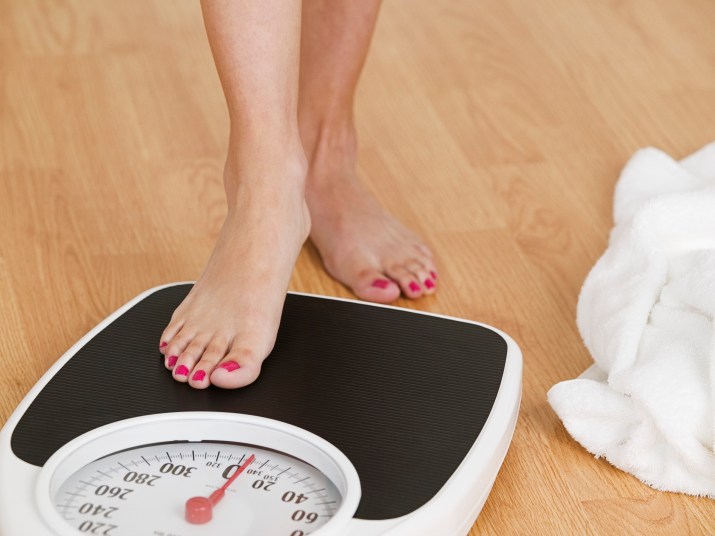A Dietician Reveals Why You’re Struggling to Lose Weight on Your Diet

From guzzling apple cider vinegar to cutting out carbs, we reckon we’ve tried every weight-loss tip under the sun. But sometimes, even when you’re off to a flying start, the pounds just come creeping back. So where are we going wrong? We had a talk with accredited practicing dietitian Margaret Mielczarek, and she’s revealed the most common dieting mistake people make
1. You’re Restricting Yourself Too Much
When it comes to weight loss, it’s not a one-size-fits-all approach, but Mielczarek has noticed something that many of us tend to do: be overly restrictive and try to do everything at once.
“Cutting everything out all at once typically doesn’t last and often leads to throwing in the towel on well-intended efforts and bingeing or overeating,” she explains.
Instead, Mielczarek says the tip to keep in mind is to make gradual changes and choose an approach that will work long term. “Like with any other goal, consistency is key. This is why we’ve created the Youfoodz 70/30 program, which is all about eating healthy 70 percent of the time and enjoying your favorite treats 30 percent of the time. It helps make healthy eating easy and turns it into a lifestyle rather than a diet.”
2. You Haven’t Analyzed Your Lifestyle
Before you rush into a weight-loss program, Mielczarek says it’s important to figure out what works for you rather than what everyone else is doing. “You need to figure out what will work for you based on your goals, how much exercise you’re doing, your energy requirements, and your medical history, and what you can stick with consistently.”
“If ‘fasting’ or skipping that mid-meal snack works for you, great! If you’re someone who needs a mid-meal snack to get through the afternoon or to fuel your after-work gym session, that’s okay, too — just make sure you reach for a healthy option.”
“The main thing is the quality of what you’re eating (and yes, that includes the quality of your snacks too!) as well as the overall amount.”
Intermittent fasting has become a huge weight loss trend in recent months, but Mielczarek says ideally we should be eating every three to four hours. “This can be achieved with well-balanced meals and snacks that include lean proteins, good quality carbs, and healthy fats. Meal balance helps to maintain more stable blood sugar levels, warding off excessive hunger and sugar cravings between meals.” Though it’s important to keep in mind that you shouldn’t snack unless you’re truly hungry.
“When 10 a.m. rolls around, don’t just reach for a snack as a way to break up your morning if you’re not actually hungry! On the flip side, if you are hungry, respond to that hunger with a healthy snack (e.g. an apple with a handful of almonds) to prevent overeating at your next meal.”
Feeling inspired to kick-start a new and healthy lifestyle? Before you get started, Margaret has piece of advice for you. “Nutrition is very individual and dependent on your goals, exercise level, life stage, medical history, and energy requirements. Before choosing any weight-loss approach, it’s important to consider all of these factors and consult a doctor or dietitian — then you can decide what approach will work for you.”
This article originally appeared on our sister site, Now to Love.
More From FIRST
Dirty Keto Allows You to Indulge on Fast Foods — But Is It Worth It?
















